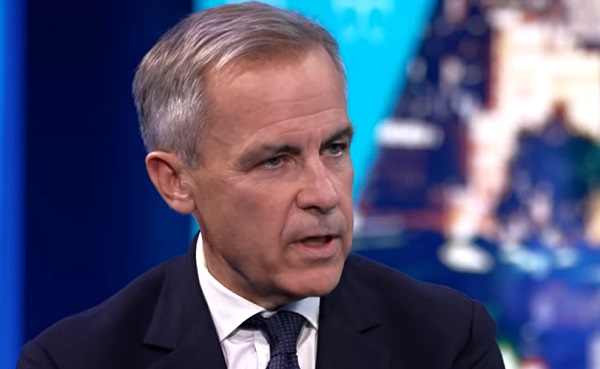International
Canadian politicians, citizens sound alarm over Trump’s ’51st state’ comments
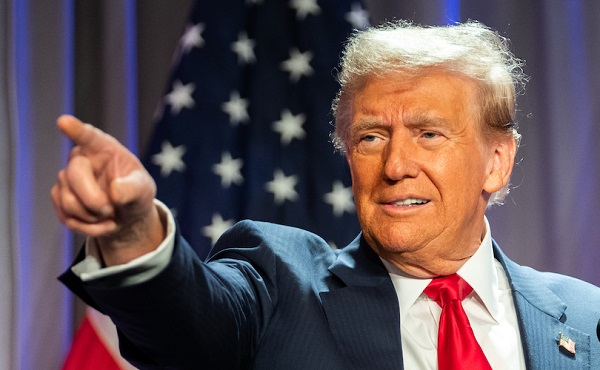
From LifeSiteNews
People’s Party of Canada leader Maxime Bernier warned that if Trump is serious, citizens should be concerned that he seems open to destroying ‘our economy and our standard of living’ to advance an imperialist agenda
While many have dismissed U.S. President-elect Donald Trump’s rhetoric about annexing or absorbing Canada as a joke, others are warning that these threats should be taken seriously and that if this plan is actioned, it would spell disaster for North America.
While Trump’s comments appeared to be lighthearted at first, his recent declaration that he is keen on using “economic force” to compel Canada to join America has been met with harsh criticism from Canadians, some of whom see the move as a ploy to advance a nefarious agenda of imperialism at the expense of sovereignty.
People’s Party of Canada leader Maxime Bernier, who endorsed Trump in the election, issued a scathing statement in response to Trump’s comments, accusing the soon-to-be president of adopting the “militaristic and imperialist attitude” of the “neoconservative establishment” in America that has for “decades … invaded, engineered coups, bombed, and killed thousands of innocents in countries that posed no threat to them, under the pretext of ‘protecting the free world.’”
Bernier further warned that while Trump says he does not intend to begin “bombing our cities and killing us like his predecessors” have done in Vietnam and Afghanistan, the use of “economic force” means Trump is willing to “destroy our economy and our standard of living” in order to advance his goals.
Conservative Party leader Pierre Poilievre also responded to Trump’s comments in a serious manner, vowing to never allow Canada to be absorbed by America.
As LifeSiteNews has reported, the idea of a North American Union has been warned about before by anti-globalist conservatives. In fact, Pat Buchanan warned in 2007 that such a union is the ultimate goal of globalists.
“For generations U.S. and foreign elites have sought to diminish American sovereignty and dilute our national identity. The penultimate step to world government, a North American Union built on the model of the European Union — which would one day merge with it in a World Union of Nations and Peoples — is on the table,” he said.
From the Canadian perspective, many citizens online seem to share Buchanan’s sentiment that such a merger between the U.S. and Canada is part of a globalist plot to usher in a “New World Order.”
Business
Trump’s steel tariffs will hit BC hard
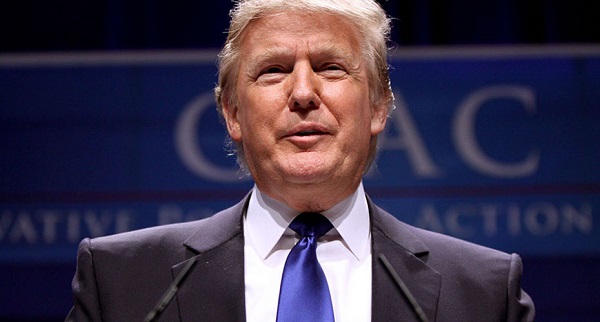
From Resource Works
BC is a huge source of mettalurgical coal, which is used to make steel.
US President Donald Trump’s announcement of 25 percent tariffs on imported steel will send shockwaves through many industries but one of the hardest hit will be British Columbia’s coal industry. As the largest exporter of metallurgical coal in Canada, B.C. relies heavily on global steel production and these tariffs will reduce demand, destabilize prices and disrupt supply chains.
Unlike thermal coal used to generate electricity, over 95 percent of coal mined in British Columbia is metallurgical coal or coking coal. This coal is used to produce coke, a carbon rich fuel used to remove oxygen from iron ore in blast furnaces. Steel production is a big part of global industrial activity and B.C.’s coal industry exists because of that demand.
According to provincial data coal is B.C.’s most valuable mined commodity, generating billions of dollars in revenue each year. B.C. coal is exported mainly to Asian markets like Japan, China, South Korea and India but the US steel industry has been a customer too. A reduction in US steel production due to tariffs could disrupt global steel trade flows and reduce demand for metallurgical coal from B.C. miners.
Trump’s latest 25 percent tariffs on all steel imports is a repeat of what happened in 2018 when similar tariffs were introduced. At that time the tariffs increased costs for US manufacturers and led to retaliatory tariffs from Canada and other trade partners. The economic impact was big – Canadian steel and aluminum producers lost business and retaliatory tariffs were imposed on a range of American goods. The 2018 tariffs also didn’t revitalize US steel production which was 1 percent lower in 2024 than 2017 despite those protectionist measures.
This time the tariffs will hit even harder. Unlike 2018 when Canada and Mexico were eventually exempted after negotiations, this time Trump has said his tariffs will apply to “everybody”. That means the Canadian steel industry will once again be caught in the crossfire and with it the metallurgical coal industry that supplies it.
If Trump’s steel tariffs prevent U.S. manufacturers from importing steel due to higher costs, steel production will decline. That will mean lower global demand for metallurgical coal including B.C.’s high grade supply. B.C. coal miners are already facing challenges from environmental policies, competition from other jurisdictions and regulatory delays. A downturn in demand from steel producers could be the trigger for more mine closures or reductions in production.
Plus these tariffs could start another trade war. Canada retaliated in 2018 with tariffs on U.S. goods like orange juice and whiskey and similar measures may follow this time. The uncertainty will delay investment decisions in Canada’s mining sector especially for new projects or expansions that rely on stable steel demand.
The long term viability of metallurgical coal is already in question as the steel industry looks towards greener production methods like hydrogen based steelmaking. Sweden has already developed facilities that don’t require coking coal and while the transition to such technologies will take decades the latest trade disruptions could accelerate that shift.
Trump’s tariffs are meant to protect U.S. steel makers but history shows they often have the opposite effect, increasing costs for American manufacturers and economic instability for key trading partners. For B.C.’s coal industry the combination of declining steel demand, disrupted supply chains and potential trade retaliation puts the sector in a tough spot.
British Columbia’s coal industry is deeply connected to global steel production making it very exposed to Trump’s latest tariffs. The move will reduce demand for metallurgical coal, disrupt export markets and add more financial stress to the province’s miners. Given Trump’s track record on trade B.C. should prepare for economic uncertainty and look at diversification strategies to mitigate the impact of another round of U.S. protectionism.
Business
FEMA Quietly Slid $59 Million Out The Door For Illegal Migrants To Put Their Feet Up At ‘Luxury Hotels’: Musk
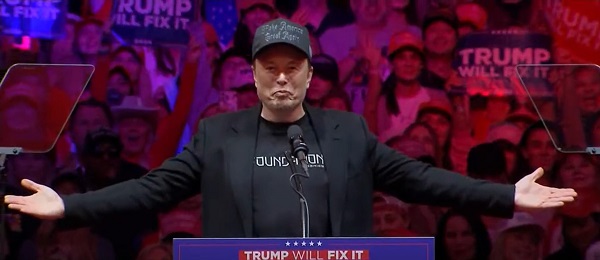

From the Daily Caller News Foundation
By Jason Hopkins
“That money is meant for American disaster relief and instead is being spent on high end hotels for illegals!” he continued. “A clawback demand will be made today to recoup those funds.”
The Federal Emergency Management Agency (FEMA) handed out $59 million to “luxury” hotels in New York City to house illegal migrants, Elon Musk said Monday.
Musk — who leads the Department of Government Efficiency (DOGE), a temporary agency within the Trump administration tasked with weeding out frivolous spending by the federal government — said it was his DOGE team that made the discovery. The top White House official said the payment was in violation of President Donald Trump’s executive order and efforts would be made to recover the funds.
“The @DOGE team just discovered that FEMA sent $59M LAST WEEK to luxury hotels in New York City to house illegal migrants,” Musk posted on X. “Sending this money violated the law and is in gross insubordination to the President’s executive order.”
“That money is meant for American disaster relief and instead is being spent on high end hotels for illegals!” he continued. “A clawback demand will be made today to recoup those funds.”
The details around the alleged payout are not completely clear. FEMA did not immediately respond to a request for comment from the Daily Caller News Foundation, nor did a spokesperson for DOGE.
Former White House press secretary Karine Jean-Pierre in October denied the Biden administration was using FEMA funds for migrant accommodations, but in 2022 she suggested that the agency was assisting cities with the migrant crisis.
On his first day back in office, Trump signed an executive order that placed a temporary suspension on refugee resettlement into the United States. The president additionally noted how some major cities, like New York City and Chicago, have requested federal aid to help manage the massive influx of migrants entering their jurisdictions.
The president additionally signed an executive order placing a freeze on federal grants and loans as it conducts a review of the government’s spending, but that order has since been blocked by the courts.
However, New York City officials have a long history of placing illegal migrants into four-star hotels as they’ve struggled to find accommodations for the sheer number of asylum seekers flocking to the Big Apple.
New York City began housing migrants in the four-star Collective Paper Factory hotel around August 2023 after it was reorganized into a Department of Homeless Services emergency shelter. The five-story Collective Paper Factory itself is equipped with a restaurant, a gym, a bar, meeting rooms for guests and communal spaces.
The “chic” Square Hotel was converted into housing for migrants. Other “upscale” hotels in the Big Apple have also been converted into migrant housing in the past as city officials continue to deal with the migrant crisis, including The Row, which has also been described as a “four-star hotel.”
“A 4-star hotel is considered luxury lodging,” according to Kayak, a company that provides hotel booking services. “Guest rooms are noticeably more spacious, with top-quality linens, pillowtop mattresses, bathrobes, slippers, minibars, and upscale toiletries, plus equipped kitchens.”
NYC’s Department of Homeless Services was reportedly seeking a contract with local hotels to provide roughly 14,000 rooms in order to shelter migrants through 2025. City officials anticipated spending on migrants in need of housing for the current fiscal year and the past two years combined will exceed $2.3 billion, with a significant amount of these costs going toward hotel rent.
The Big Apple — a sanctuary city jurisdiction with strict laws restricting cooperation between local law enforcement and Immigration and Customs Enforcement — has become a major destination for the massive number of illegal migrants who’ve flocked into the United States. Roughly 230,000 migrants have arrived in NYC since the spring of 2022, according to data provided by the mayor’s office.
FEMA underwent an internal investigation in November after it was uncovered that a supervisor reportedly instructed disaster relief workers deployed in the aftermath of Hurricane Milton to avoid houses with Trump signs.
-

 Business2 days ago
Business2 days agoMark Carney’s carbon tax plan hurts farmers
-
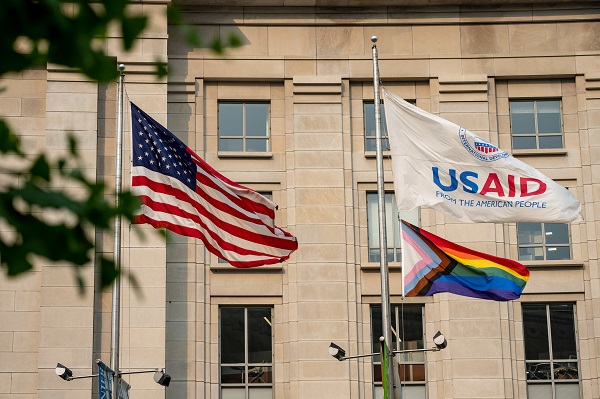
 Business1 day ago
Business1 day ago‘The DNA Of Our Foreign Policy’: How USAID Hid Behind Humanitarianism To Export Radical Left-Wing Priorities Abroad
-

 Energy1 day ago
Energy1 day agoLATE TO THE PARTY: Liberal Resource Minister Minister Suddenly Discovers Canada Needs East-West Pipeline
-
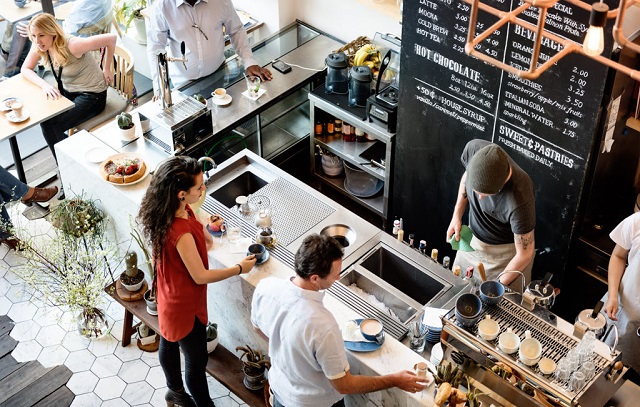
 Business2 days ago
Business2 days agoDo Minimum Wage Laws Accomplish Anything?
-

 International21 hours ago
International21 hours agoDonald Trump reaffirms intention to buy Gaza and annex Canada
-

 Business23 hours ago
Business23 hours agoCanadians continue to experience long waits for MRIs and CT scans
-

 Business1 day ago
Business1 day ago‘Let’s Do A Deal’: Ukraine’s President Zelenskyy Says Yes To Trump’s Demands
-

 Business6 hours ago
Business6 hours agoFEMA Quietly Slid $59 Million Out The Door For Illegal Migrants To Put Their Feet Up At ‘Luxury Hotels’: Musk




